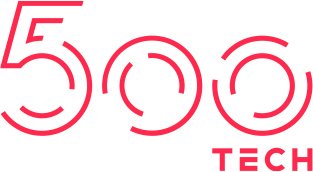- info@500tech.com
- HaYetsira 19, Ramat Gan
TL;DR: Do you have an amazing CV? We don’t care. Are you an amazing developer? Welcome aboard.
Our experience argues that the connection between a good CV and a person’s skills and knowledge is very frail. Even when we read between the lines, around them, above them, it’s just impossible to deduce the right things from a CV.
Our best employees had really bad CVs when we hired them. A great example is our two most senior developers that currently have the most leading roles in our company: COO and CTO. When we hired them, they had CVs that most companies would dismiss without inviting to an interview.
We got lucky
We hired them because we invited them over for an interview and immediately saw that they are a great fit. It turns out that in a face-to-face interview, it’s very easy to tell that if someone is an amazing-unicorn-ninja-prodigy developer.
So the question is why did we invite them over? To be honest, at that time around 4–5 years ago we were pretty desperate to find good developers. So we didn’t have the luxury of filtering from hundreds of CVs like we do today. Retrospectively, that was an excellent thing for us.
Blind tests
Our latest move was a bold one. We decided to skip reading CVs at all as a filter for interviews. You probably think to yourself, wait, do you interview a hundred people every month? Well, with a much larger candidate pool, we had to make our funnel longer, and our recruiting process more efficient and systematic.
Our process — hire based on skills, not CV
Although it looks tiring on paper, for a good candidate the process can be over with a short test, and 1–2 interviews in our office. The steps are:
Step 1: Classify
We classify candidates into two groups: Junior, non-Junior. A Junior is anyone with less than 1-year experience, or even fresh out of school.
Step 2: Short home Test
We call them, explain about our company and the process, and send them a short home test (40 minutes), with detailed instructions and a time limit. We then record how long it takes them and have our tech leads go over and filter the best ones.
Step 3 (optional): Frontal Test
Unfortunately — many people cheat in home tests. So we invite the candidates over for another test in our office. Sometimes we invite over a few people together — to make the process more efficient. We will skip this step if we already saw great talent in the home test.
Step 4: Interview
Here we do a full-fledged interview and ask the questions that are appropriate for their experience and skills. Our final answer usually comes within 1–2 days.
Step 5 (optional): Full day
It is tough to know if someone will fit our requirements and standards, and also be a cultural fit. So in many cases, we invite them over for a paid full day in our office, and they work on a real project. It’s a great way for both sides to get a good impression of each other and make a final decision.
After refining and optimizing the process, this approach proved itself as an efficient way of finding good developers. If you try it yourself, then you should be patient, as it might seem tiring at first. Also, it takes a real mind-shift to remove all filters and allow every person to enter the process.
- info@500tech.com
- HaYetsira 19, Ramat Gan
